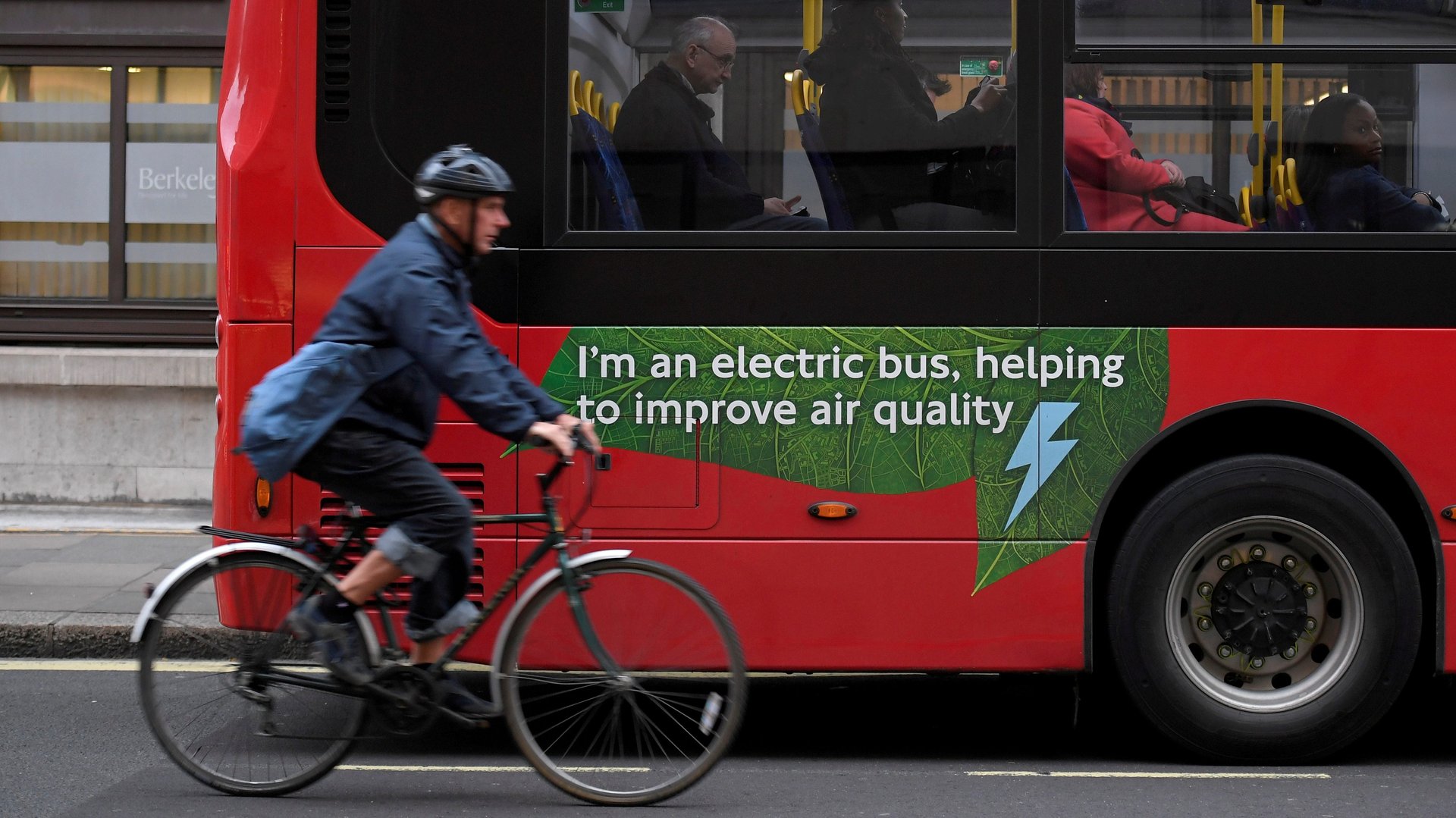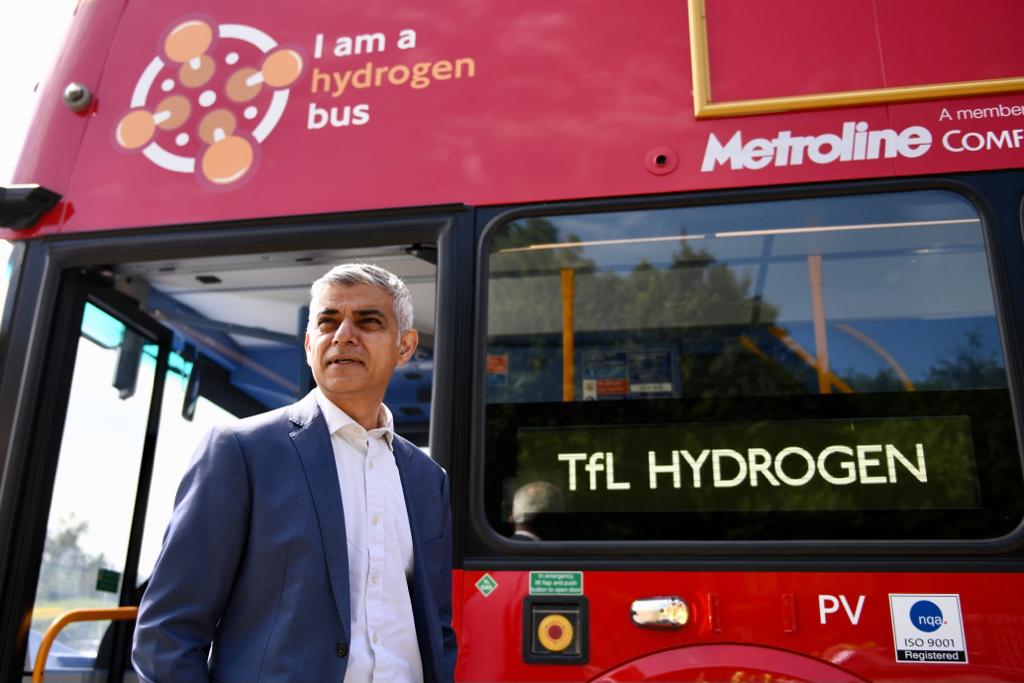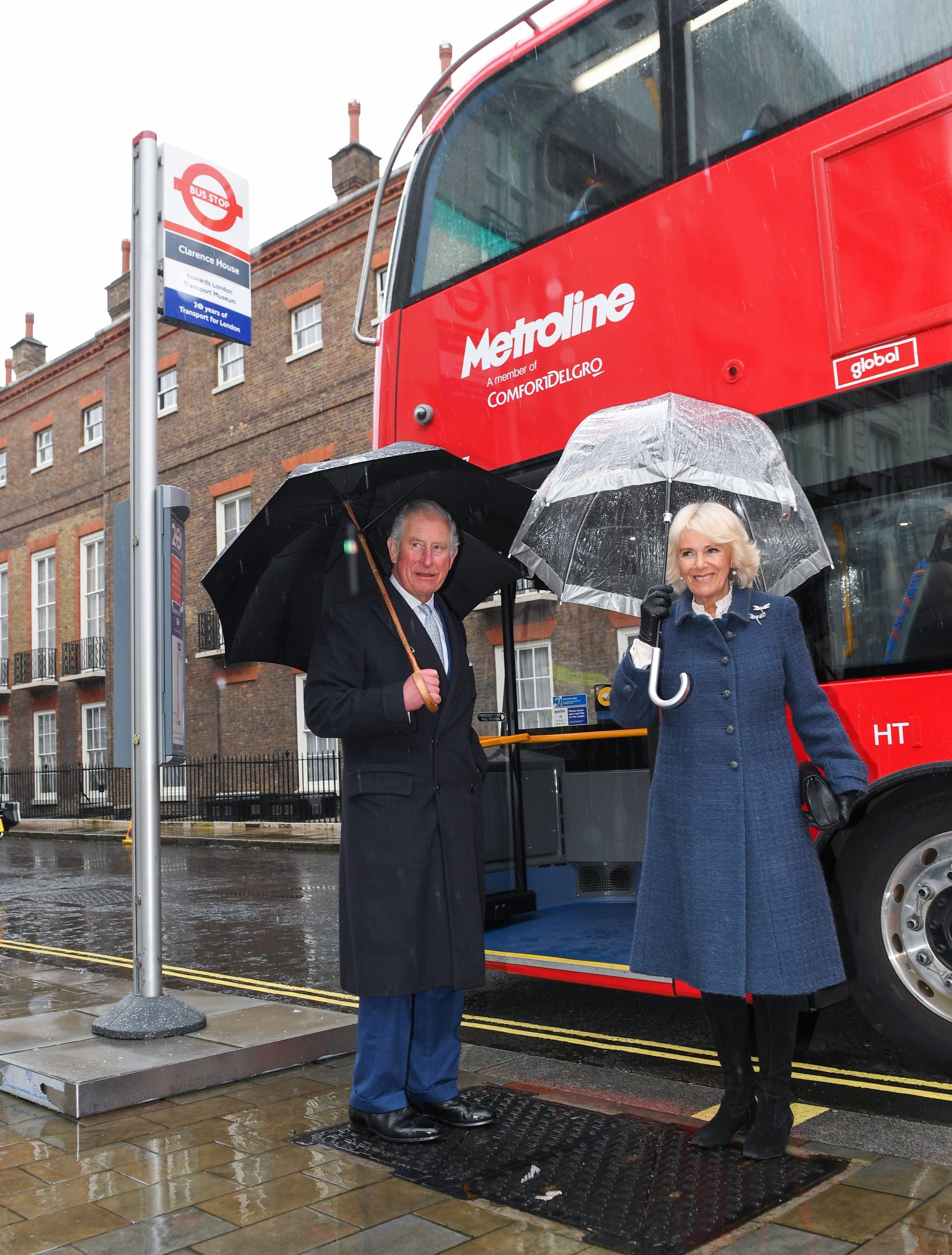London has rolled out its first hydrogen double-decker bus
London’s iconic red double-decker buses are getting a bit greener. London mayor Sadiq Khan announced city will add to its fleet hydrogen fuel-cell double-decker buses that produce no pollution.


London’s iconic red double-decker buses are getting a bit greener. London mayor Sadiq Khan announced city will add to its fleet hydrogen fuel-cell double-decker buses that produce no pollution.
The 20 new buses join the 500 electric and 3800 hybrid buses already in service as part of efforts to improve the city’s air quality, as well as to make all of London buses zero emission by 2030.
Khan touted the vehicles’ benefits, saying in a tweet: “These hydrogen-powered double-decker buses don’t produce exhaust fumes. Not only will they help clean up London’s air but they’ll give Londoners quieter, smoother journeys.”

How fuel cell buses work
The vehicles are powered by electricity that is generated when hydrogen gas and oxygen from the air react within a fuel cell. The buses can be fueled with hydrogen in as little as five minutes, and the only resulting byproduct is water vapor. The true carbon impact of hydrogen power, however, includes all the steps in the process from production to tailpipe.
“Whether the hydrogen buses will help reduce greenhouse gas emissions will depend on how the hydrogen is manufactured, transported, and stored. That process takes additional energy and therefor produces additional emissions” explains Eleanor Jackson, the Electric Mobility Research & Communications Assistant at the World Resources Institute.

For now, London’s new buses will use hydrogen from an industrial gas plant in northwest England, a process that Jackson describes as one of the cleaner methods to obtain it. By 2023, the city hopes to switch to hydrogen produced with electricity from an offshore wind farm, which will lower the emissions impact further.
The buses form part of the city transit authority’s multifaceted effort to reduce public transit emissions. In addition to new hydrogen and electric buses, the Mayor’s office has spent £300 million ($420 million) on retrofitting the existing bus fleet to phase out conventional fuel sources like diesel. It’s part of the mayor’s larger transport plan, to have “80% of all trips in London to be made on foot, by cycle, or using public transport by 2041.”
Reducing the carbon footprint of buses and transit
Cities in Europe and around the world have for years been working towards ambitious goals to reduce their overall carbon footprint. Achieving these goals requires not only removing fossil fuels from their public transportation fleets, but shifting more passengers away from personal vehicles towards mass transit. A 2020 study by researchers from the University of Aberdeen indicated that electric and hydrogen buses will be critical for the UK to meet its emissions targets set out in the Paris Agreement. It found that between now and 2050, the cumulative carbon impact of hydrogen bus flees would be less than a third of carbon emissions created by electric vehicles.
Correction (June 29): An earlier version of this item incorrectly referred to the World Resources Institute as the World Resource Institute.